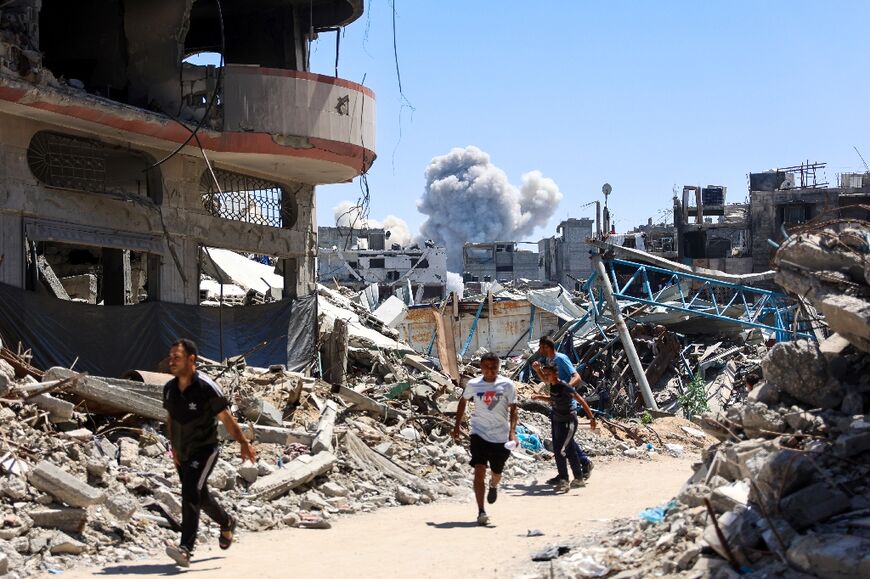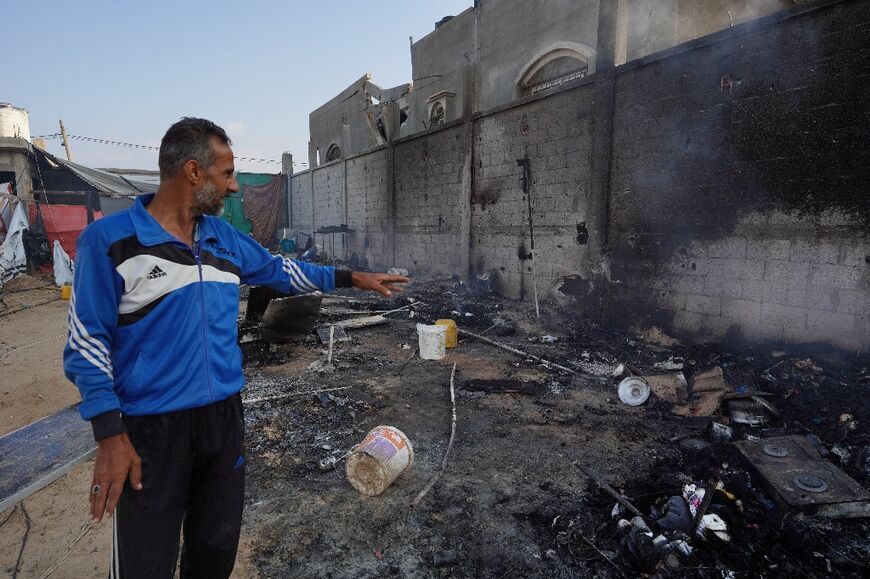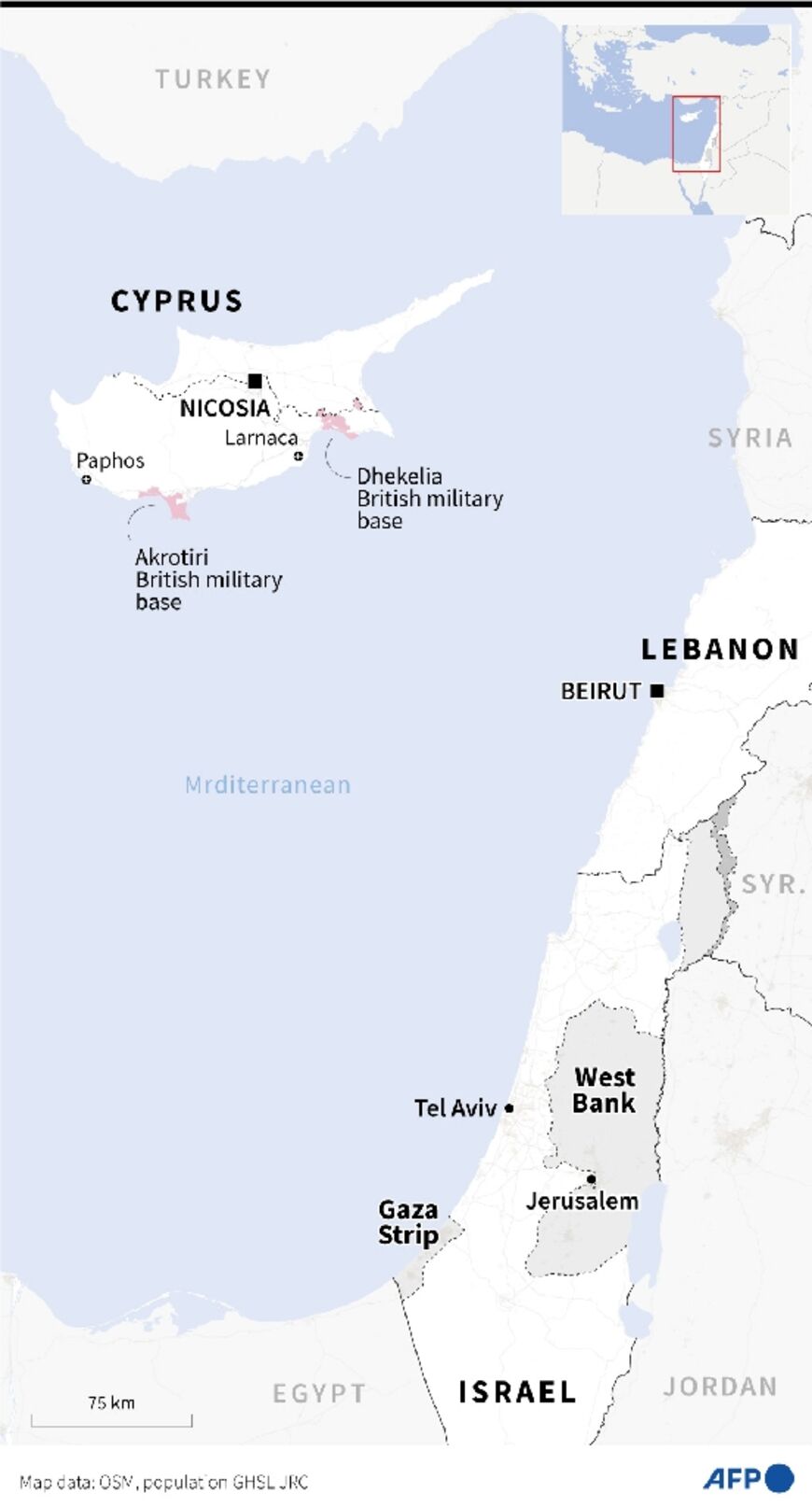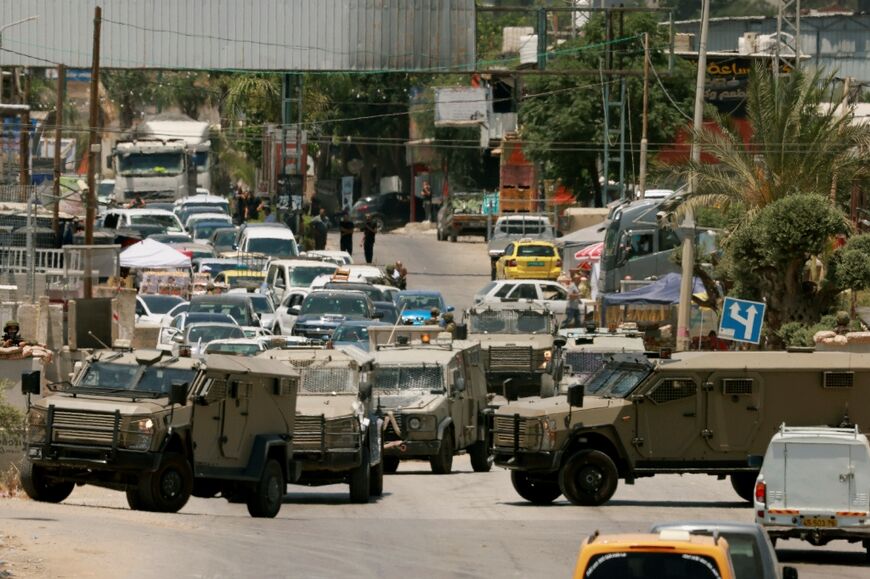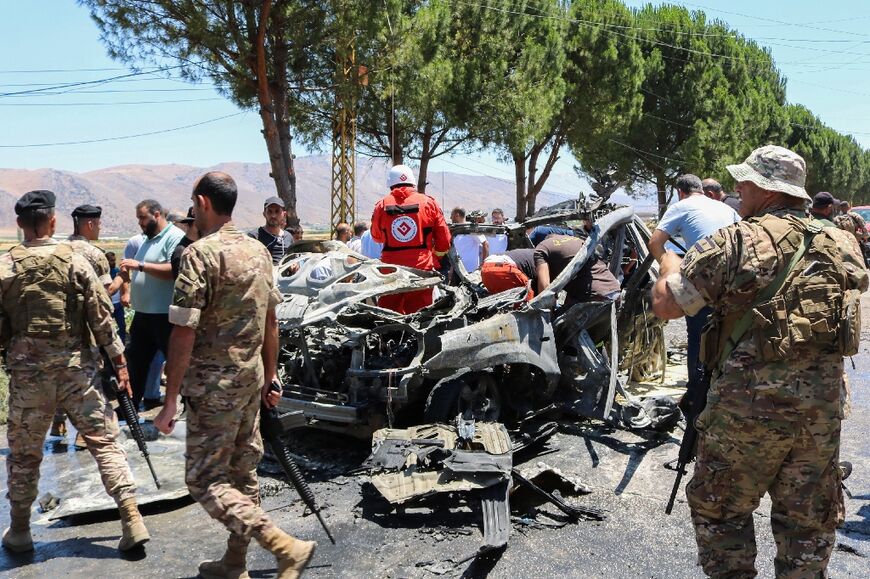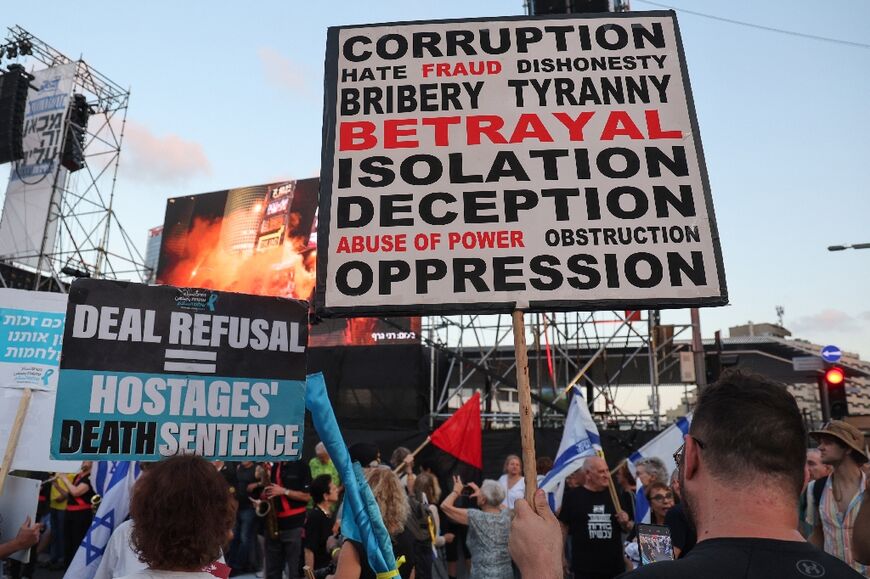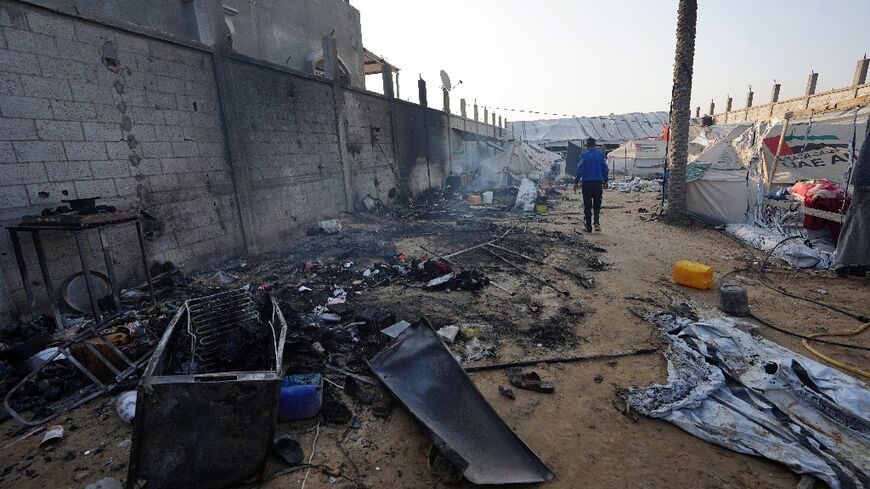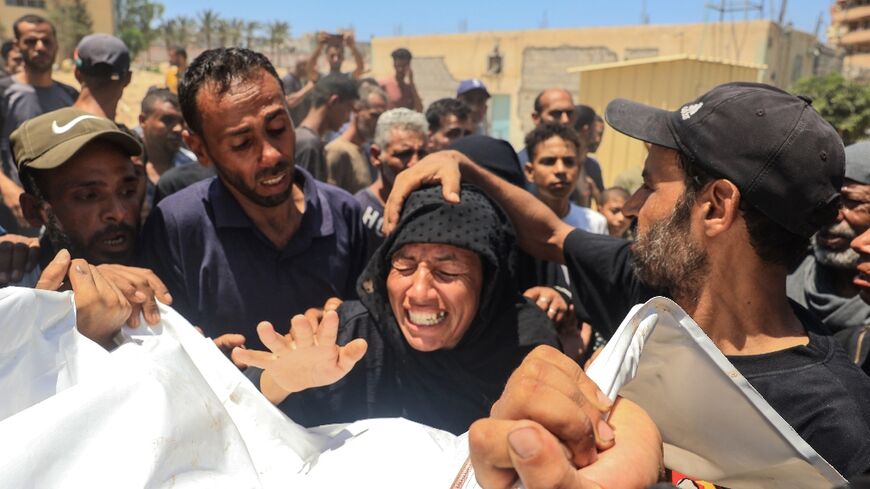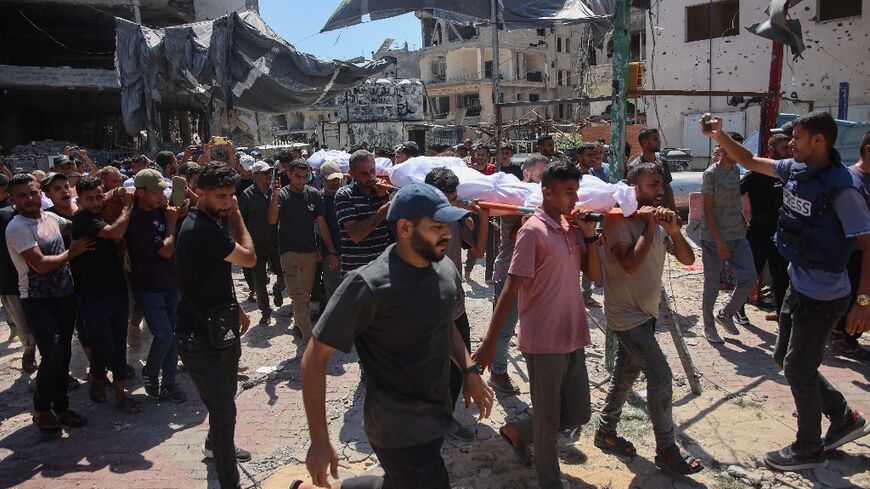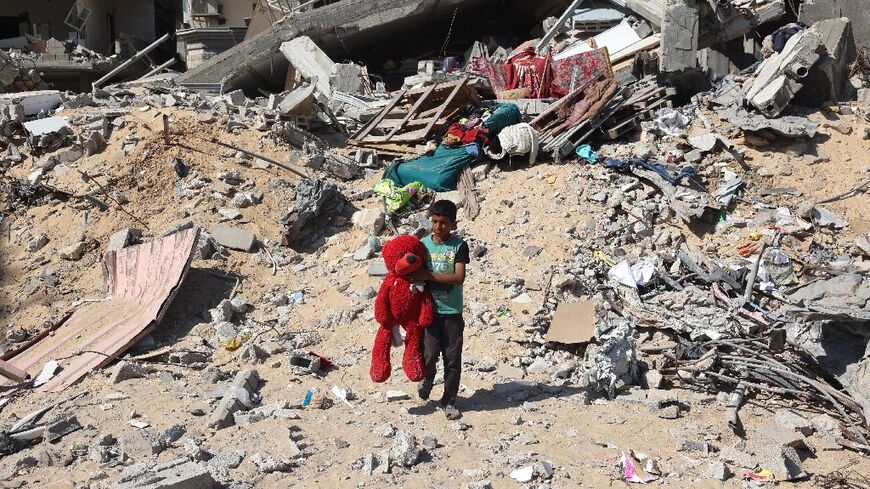Gaza health officials say 24 killed in Israeli strikes
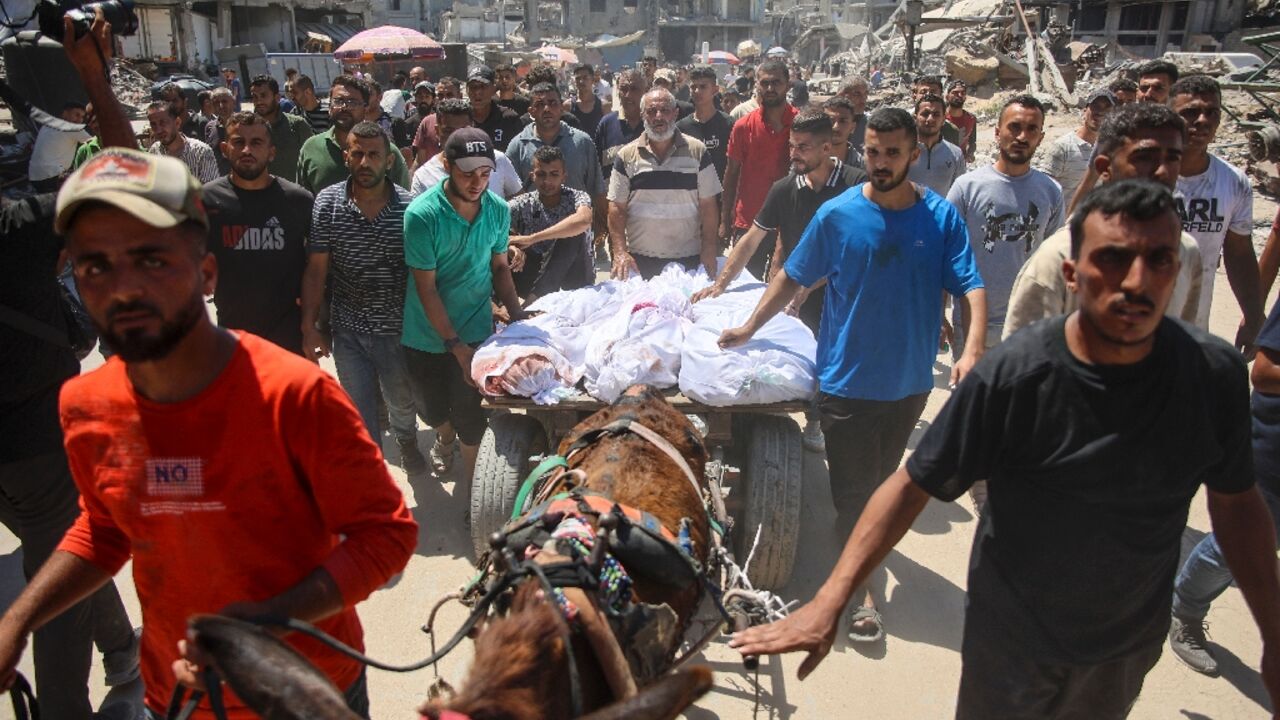
Health officials in Gaza said Israeli air strikes on Saturday killed at least 24 people in the territory's north, a day after the International Committee of the Red Cross said 22 people were killed in shelling that damaged its office.
The Gaza City strikes added to at least 120 deaths over the previous 48 hours which the health ministry in Hamas-run Gaza reported earlier Saturday.
Dr Mahmud Aliwa of Al-Ahli hospital in Gaza City said his facility received 24 bodies after the strikes, which left smoke rising over the city.
Gaza's civil defence agency spokesman Mahmud Basal told AFP that at least 20 were killed in a strike on a house in Al-Tuffah neighbourhood, while a strike in Al-Shati refugee camp claimed the lives of four others.
"People were going about their business" when, suddenly, "the whole area was wiped out" in an air strike, said Abu Mahmud al-Kariri, an eyewitness in Al-Shati.
Against a grey backdrop of destruction, men used a donkey cart to remove some of the dead in Al-Tuffah.
Earlier on Saturday, Israel's military said its fighter jets were striking "two Hamas military infrastructure sites" in the Gaza City area.
The European Union's foreign affairs chief, Josep Borrell, on Saturday called for an "independent investigation" into the shelling that damaged the ICRC office.
Jordan, which signed a peace treaty with Israel 30 years ago, condemned what it called Israel's "systematic targeting" of civilians and relief organisations.
- 'Dangerously close' -
Late Friday the ICRC said 22 dead and 45 wounded were taken to a Red Cross field hospital after shelling with "heavy calibre projectiles" near its southern Gaza office.
Local ICRC chief William Schomburg told reporters Saturday: "There were piles of dead bodies, blood everywhere" and a "flood of wounded people" seeking help.
Gaza's health ministry blamed the shelling on Israel, saying 25 were killed and 50 wounded in the coastal Al-Mawasi area, where thousands of displaced Palestinians have been sheltering in tents.
An Israel military statement on Saturday said an initial inquiry found "there was no direct attack carried out by the IDF against a Red Cross facility", but the incident was still under review and "findings will be presented to our international partners".
On Saturday witnesses reported gun battles in Gaza City between militants and Israeli forces backed by helicopter fire.
The deadliest-ever Gaza war began with an unprecedented October 7 attack by Hamas militants on southern Israel. That attack resulted in the deaths of 1,194 people, mostly civilians, according to an AFP tally based on Israeli official figures.
The militants also seized hostages, 116 of whom remain in Gaza although the army says 41 are dead.
Israel's retaliatory offensive has killed at least 37,551 people, also mostly civilians, Gaza's health ministry said on Saturday.
Exchanges of fire across the Lebanese border between Israel and the powerful Iran-backed militant group Hezbollah have also escalated, raising fears of wider war.
On Saturday a security source said a leader of the Lebanese Islamist group Jamaa Islamiya, a Hamas ally, was killed in an Israeli strike on a vehicle in eastern Lebanon.
- 'Precise strike' -
Israel's military said an aircraft carried out a "precise strike" in the Bekaa area "to eliminate the terrorist" Ayman Ghotmeh, who they said supplied weapons to Hamas and Jamaa Islamiya.
In southern Lebanon, Israeli warplanes struck Hezbollah targets, the military said.
Experts are divided on the prospect of a wider war, but United Nations Secretary-General Antonio Guterres said the cross-border hostilities must not turn Lebanon into "another Gaza".
Citing "bellicose rhetoric" on both sides, he warned: "One rash move –- one miscalculation -- could trigger a catastrophe that goes far beyond the border, and frankly, beyond imagination."
Violence has also soared in the Israeli-occupied West Bank. The Israeli military said on Saturday an Israeli civilian died after being shot near Qalqilya city.
Months of negotiations towards a Gaza truce and hostage release have failed to make headway, but mediator Qatar on Friday said it was still working to "bridge the gap" between Israel and Hamas.
Israeli Prime Minister Benjamin Netanyahu's far-right coalition partners strongly oppose a ceasefire.
Netanyahu, who is on trial for corruption charges which he denies, on Saturday night faced what organisers said was the biggest anti-government protest since the war began.
Tens of thousands rallied in Tel Aviv. One demonstrator's sign accused Netanyahu of being an "Enemy of Israel".
Supporters and families of the Gaza hostages also rallied, holding their pictures aloft.
The war has destroyed much of Gaza's infrastructure and left residents short of food, fuel and other essentials.
In Jabalia, northern Gaza, the al-Balawi family lives under blankets strung up over a concrete slab in a sea of rubble.
"There is scarcity of food and water," said Abu Siraj al-Balawi. "There are no vegetables or fruit."
burs-it/srm


